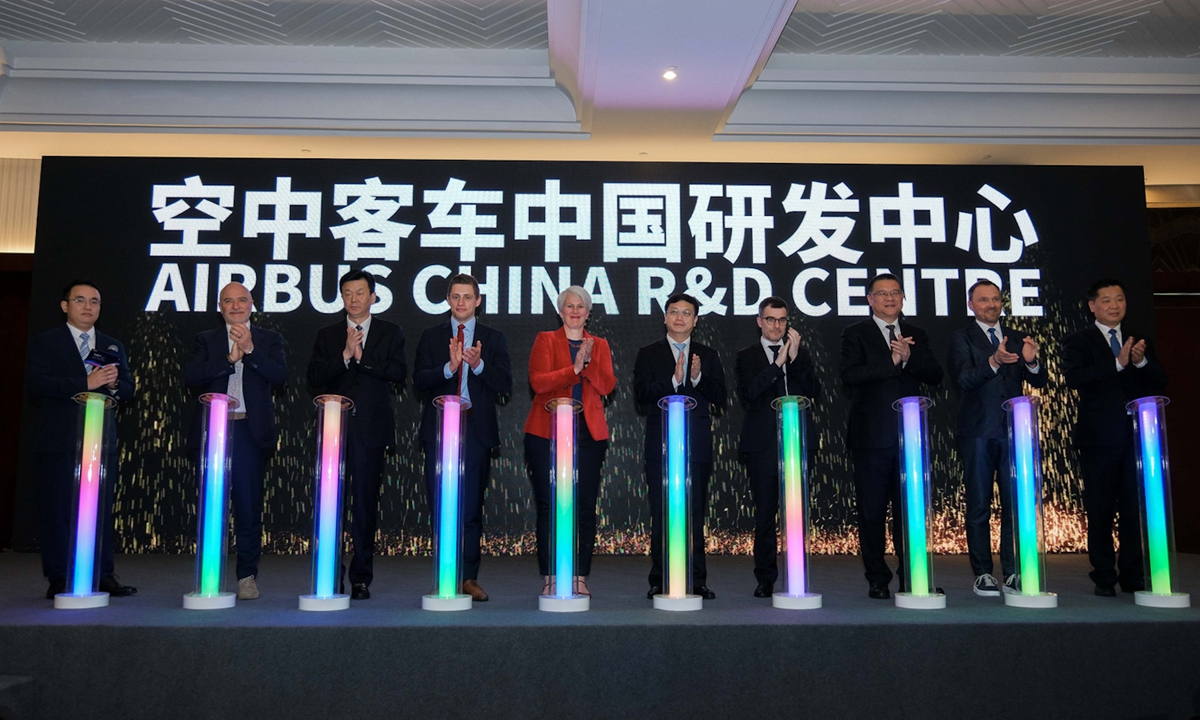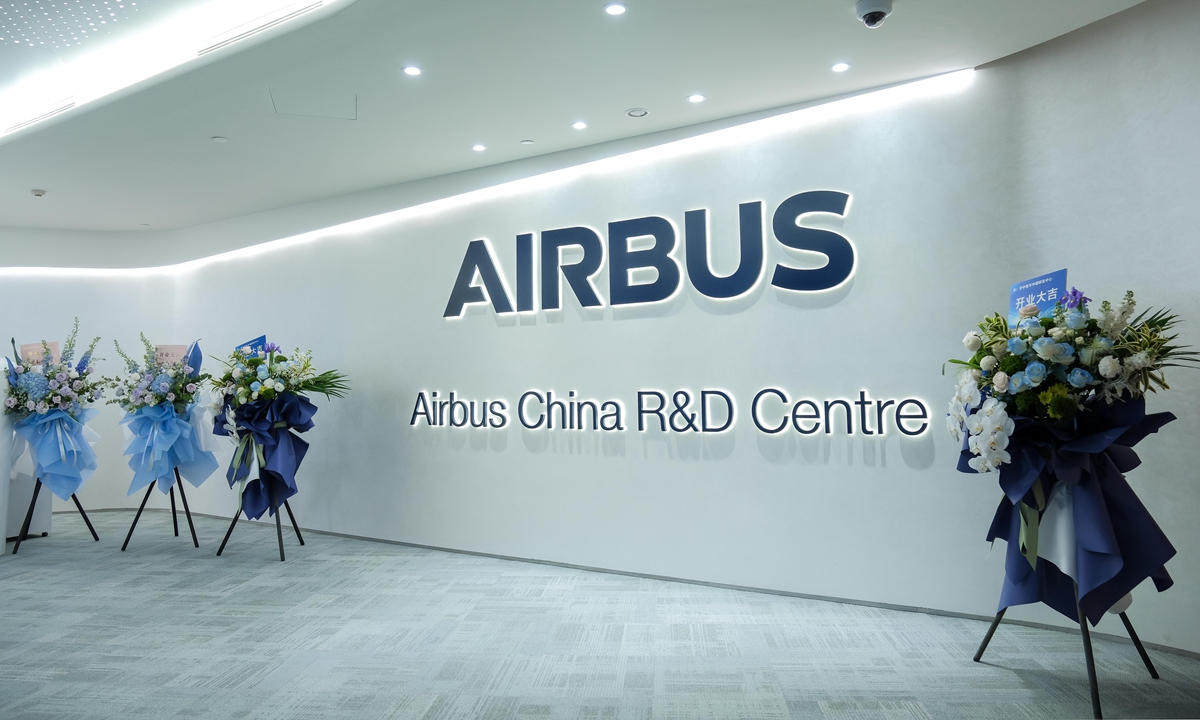
European plane maker Airbus unveils a research center in Suzhou, East China's Jiangsu Province on April 14, 2023. Photo: Courtesy of Airbus
European plane maker Airbus on Friday unveiled a research center in Suzhou, East China's Jiangsu Province, pushing forward the technological infrastructure through digitalization, a fresh step show-ing European companies are further expanding tech investment in the country.
The move also came after French President Emmanuel Macron made a state visit to China last week, along with packages of trade deals signed by European companies including Airbus during the trip, which has shown that the European companies are rejecting "decoupling with China" with concrete efforts.
Strategically positioned in the Yangtze River Delta Region of China, the center, named Airbus Chi-na Research Center, will gain from its proximity to the region's strong aeronautical and hydrogen supply chain. Research will be undertaken in manufacturing innovation, hydrogen infrastructure, cabin experience and new technologies, said Airbus.
The center will also push forward the transformation and modernization of the aviation industry through digitalization and AI. In addition, the center will nurture research and innovation projects with forward-looking technology and good market prospects.
Besides its promising aviation market, China offers advanced technological advantages in many fields. Airbus is working with partners and with China in particular to nurture technologies, discov-ering different resources, introducing alternative fuels, and developing the hydrogen ecosystem as the company works toward sustainable aviation, said Sabine Klauke, Airbus Chief Technical Of-ficer.
The center will better serve the Tianjin facility in North China to improve the product efficiency, and it will also provide sustainable development with Chinese aviation market, Klauke said.

European plane maker Airbus unveils a research center in Suzhou, East China's Jiangsu Province on April 14, 2023. Photo: Courtesy of Airbus
The inauguration came after the French President Emmanuel Macron made a state visit to China last week. Airbus signed an agreement for 160 commercial aircraft with a Chinese partner, and it will open a second assembly line in Tianjin, further expanding its presence in one of the largest aviation markets in the world.
The deals show our confidence in China's investment environment, as the Chinese aviation industry will continue to grow, said Airbus CEO Guillaume Faury during an interview on April 6.
China's stability and the growing trend are a magnet for European companies. For companies, the political relationship is important, but the market environment is more important. Avoiding political and geopolitical risks has become an increasingly prominent consideration for European companies, Cui Hongjian, director of the Department of European Studies at the China Institute of International Studies, told the Global Times on Friday.
Given a deterioration of the internal and external environment, the European countries face a diffi-cult economic recovery, which also pushes the companies to look for the markets to invest with sta-ble income and low cost. It is clear that the bilateral relationship between China and Europe is re-covering, which has created a better environment for European companies investing in China, and the visit of Macron in China also triggers a further investment trend for European countries, Cui added.
Airbus is not alone. French-based Schneider Electric said in an info shared with the Global Times on Friday that two R&D centers and a world-class innovation lab had been established in China in the past four months ending in March, further reinforcing the country's status as one of the company's four global R&D bases. The company said it has been investing in R&D in China, with over 15 percent annual growth in the past few years.
President of the European Commission Ursula von der Leyen also said during her visit in China on April 6 that the EU totally disapproves of decoupling and severing supply chains, and hopes to strengthen exchanges and dialogue with China, and carry out more mutually beneficial cooperation, according to the Ministry of Foreign Affairs.
China-EU bilateral economic, trade and investment cooperation has good momentum. Data from the China Council for the Promotion of International Trade showed that the total bilateral trade in goods between China and the EU reached $847.3 billion in 2022, a year-on-year increase of 2.4 percent.
China and the EU are each other's second-largest trading partner, Chinese companies' investment flows to the EU will reach $7 billion, and the stock of investment in the EU has reached $102.9 bil-lion.
On Tuesday, an all-cargo freighter from France's CMA CGM Air Cargo departed Paris, en route to Guangzhou Baiyun International Airport, marking the start of the intercontinental all-cargo route launched by the airport this year, according to Xinhua News Agency.





